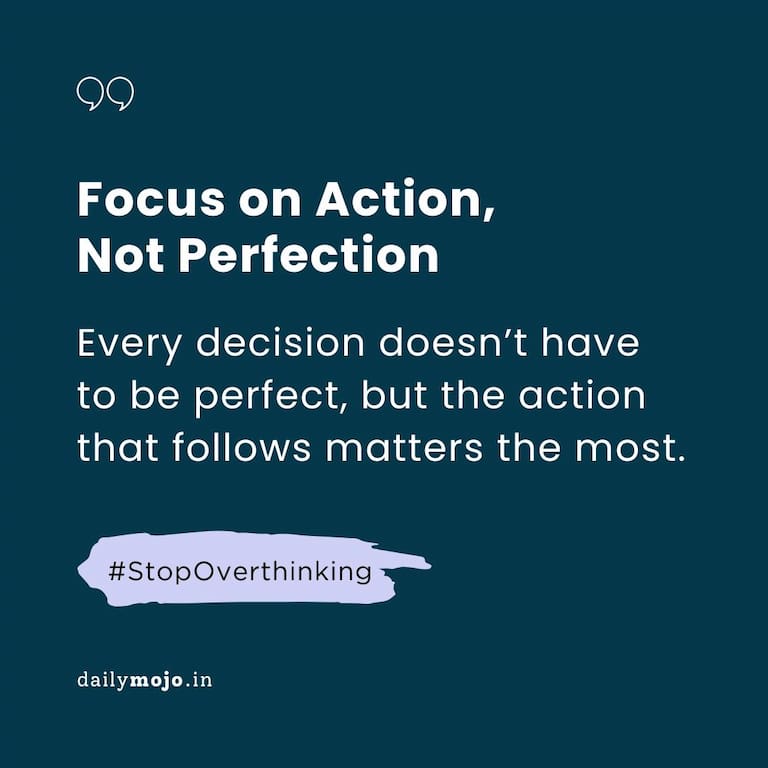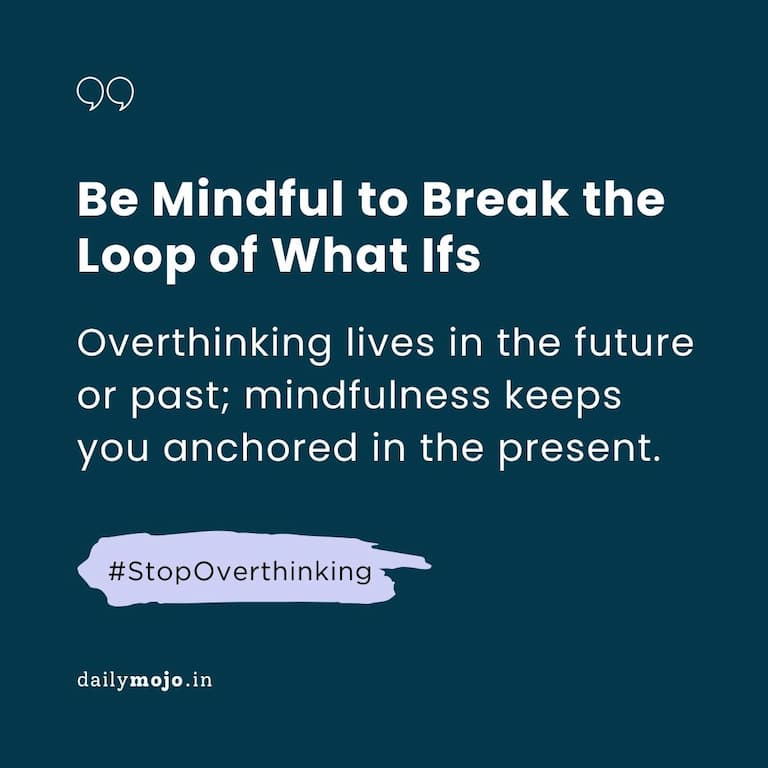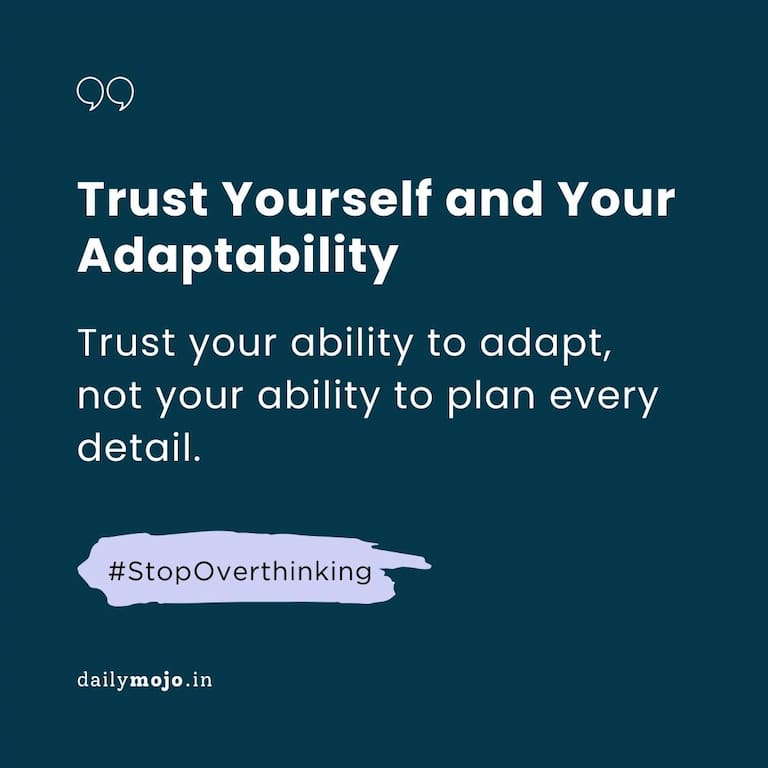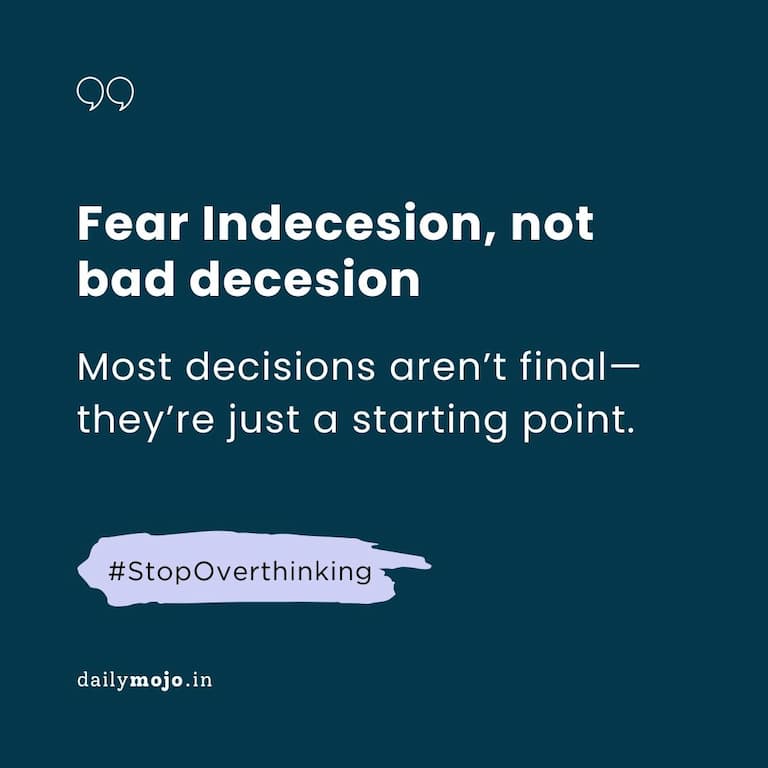Ever find yourself stuck in a loop of thoughts, constantly replaying scenarios in your mind? You’re not alone. Overthinking is something most of us struggle with at some point. But here’s the truth—it’s holding you back from living your best life.
Overthinking can sneak into our lives, stealing our time, peace, and productivity. It may feel like the more you think, the better decisions you’ll make—but often, overthinking creates confusion rather than clarity. So, how can you stop? In this guide, we’ll dive into practical, research-backed tips to help you break free from the cycle of overthinking and take back control of your mind.
Let’s explore how you can shift your mindset and develop simple habits to stop overthinking for good.
What Is Overthinking?
Overthinking is the habit of dwelling on past events, worrying excessively about future outcomes, or analyzing situations from every possible angle without ever making a decision. It’s like having a mental hamster wheel—you’re running in circles, but not really going anywhere.
In fact, studies show that overthinking not only causes mental exhaustion, but also increases stress, anxiety, and reduces our ability to solve problems effectively.
The Hidden Cost of Overthinking
Overthinking often feels productive, but it comes with a serious price tag. Here are just a few of the hidden costs:
- Decreased productivity: The more you overthink, the harder it becomes to take action.
- Increased anxiety: Constantly replaying scenarios in your mind creates unnecessary stress.
- Decision paralysis: The more you analyze, the harder it becomes to make decisions.
- Strained relationships: Overthinking can cause us to second-guess others’ intentions, leading to unnecessary misunderstandings.
Think about a time when you spent hours overanalyzing a situation. Did you end up making a decision faster? Probably not. Instead, you likely found yourself feeling stuck, anxious, and more confused than when you started.
Five Practical Tips to Stop Overthinking
I was a serious overthinker and I have consumed a lot of content on how to stop overthinking. Here are the top five practical tips that helped me get rid of overthinking, and possibly could help you too.
1. Focus on Action, Not Perfection
Overthinking often stems from a fear of making mistakes or needing everything to be perfect.
But here’s the secret: progress comes from action, not flawless planning.
Instead of getting caught up in finding the perfect solution, focus on taking small, actionable steps. Research shows that breaking tasks into smaller actions reduces the overwhelm that leads to overthinking.
What you can do:
The next time you catch yourself overthinking, ask yourself, “What’s the smallest action I can take right now?” It doesn’t have to be the perfect choice—it just needs to move you forward. For example, if you are planning to start a business and you have been thinking about it since many years without taking any action, then maybe think of a brand name today. If you have already thought of the brand name, then how about booking a domain name today? The goal is to take the next best step.
“Every decision doesn’t have to be perfect, but the action that follows matters the most.”

2. Be Mindful to Break the Loop of What Ifs
Mindfulness is a powerful tool that can help you to step out of the overthinking trap.
It involves being present at the moment, focusing on what’s happening now rather than getting lost in “what ifs” or replaying past mistakes. Studies have shown that mindfulness reduces anxiety and stress, two major contributors to overthinking.
What you can do:
Start by incorporating small mindfulness practices into your daily routine. This can be as simple as taking five minutes each day to focus on your breathing or observing your surroundings without judgment.
“Overthinking lives in the future or past; mindfulness keeps you anchored in the present.”

3. Limit Your Choices
One of the reasons we overthink is because we have too many choices, and this leads to what psychologists call “decision fatigue.” The more options you have to choose from, the more likely you are to become overwhelmed and unable to decide at all. Obviously, when you have less number of choices, you can choose and make decisions fast and easily.
What you can do:
Simplify your decision-making process by limiting your choices. For example, if you’re stuck choosing between several options, narrow it down to two or three and commit to making a decision within a set time frame.
“Fewer options lead to quicker, more confident decisions.”

4. Trust Yourself and Your Adaptability
A big reason for overthinking is the fear of uncertainty. We worry about making the wrong choice or not being able to handle the future outcome. But here’s the truth: no matter what decision you make, you have the ability to adapt and figure it out. Remind yourself of how you have dealt with unexpected situations in the past and you will know what I mean.
What you can do:
Whenever you find yourself spiralling into overthinking, remind yourself of past situations where you successfully adapted to unexpected outcomes. You’ve done it before, and you can do it again.
“Trust your ability to adapt, not your ability to plan every detail.”

5. Fear Indecesion, not bad decesion
We tend to overthink because we’re scared that one decision will ruin everything. But here’s the thing: most decisions are far more reversible than we think. And therefore instead of fearing bad decisions, you should fear indecision. You can almost always adjust, course-correct, or even change your mind later.
What you can do:
Before you get stuck in a loop of overthinking, ask yourself: “Is this decision really irreversible?” In most cases, the answer is no. Knowing that you can adjust as needed can free you from the pressure to make the perfect choice upfront.
“Most decisions aren’t final—they’re just a starting point.”

Conclusion: Small Steps Lead to Big Changes
Overthinking is a trap that many of us fall into. But you don’t have to stay stuck in it.
By shifting your mindset and applying these practical tips to stop overthinking, you can reduce the mental clutter and get out of your own way.
Remember, overcoming overthinking won’t happen overnight. It’s a habit, and like all habits, it takes time and consistent effort to break. But with each small step, you’ll start to notice that decisions become easier, and your mind feels clearer. In most cases, the key is taking action.
Which tip will you start using today to beat overthinking? Let us know in the comments below!
And, if you found this guide helpful, feel free to share it with someone who could use a little help quieting their mind.